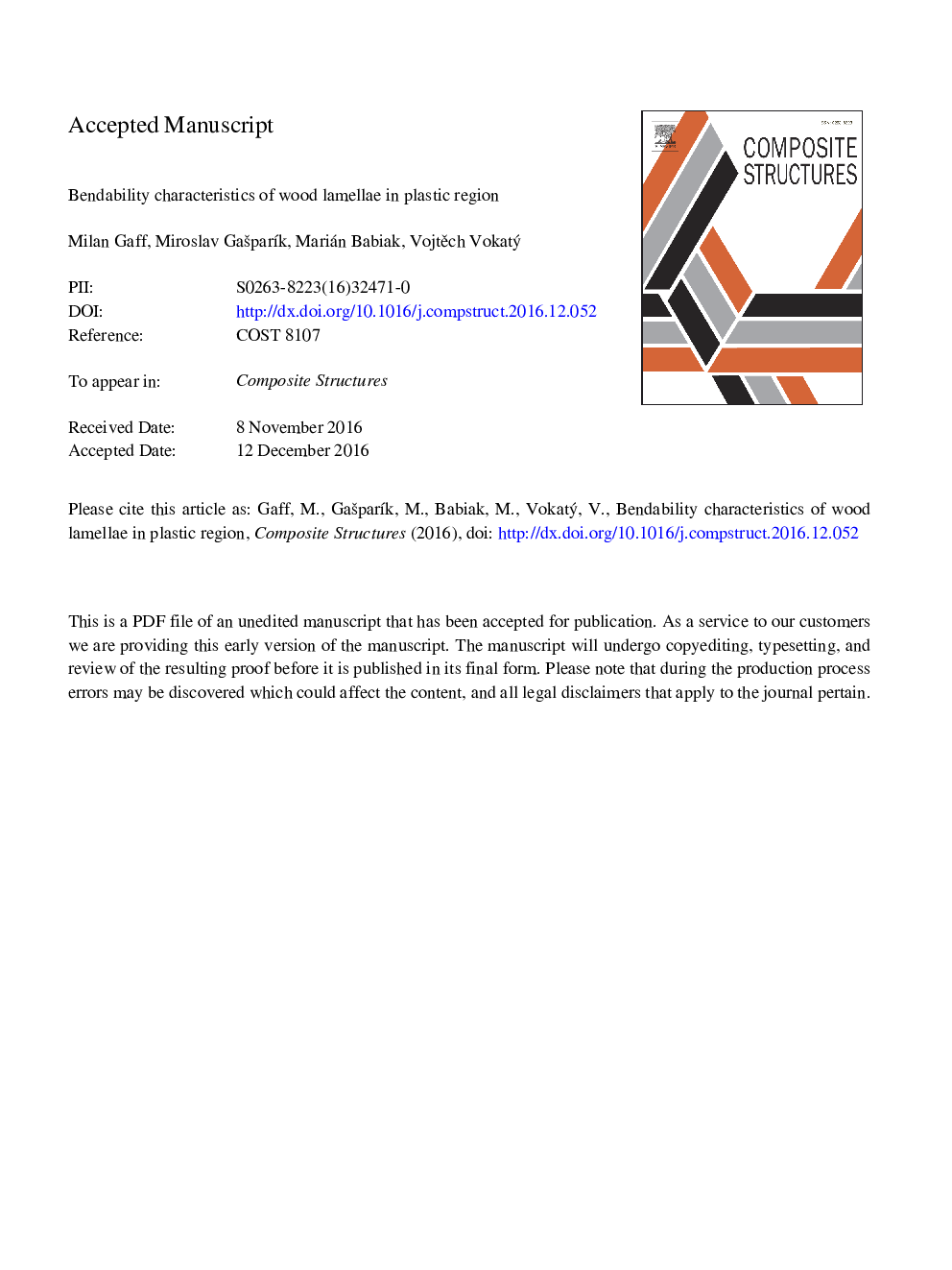| Article ID | Journal | Published Year | Pages | File Type |
|---|---|---|---|---|
| 4912089 | Composite Structures | 2017 | 22 Pages |
Abstract
This article examines the effect of different factors (material thickness, degree of densification and number of loading cycles) on the selected bending characteristics of European beech (Fagus sylvatica L.) and European aspen (Populus tremula L.). The bending characteristics, including bending strength, plasticity potential and modulus of plasticity, were measured using three-point bending. Results of the four-factor analysis demonstrate that each bending characteristic is affected differently by the given factors. The bending strength, which was higher in beech wood than in aspen wood, increased along with the degree of densification. Cyclic loading had no significant effect on the bending strength. Although material thickness had some statistical significance, its effect was not unequivocal. The modulus of plasticity was significantly affected only by the wood species and material thickness. Higher modulus of plasticity values were achieved in beech wood than in aspen wood. The modulus of plasticity gradually decreased with an increase in material thickness. Again, the cyclic loading had no significant effect. The degree of densification also proved to be insignificant, especially in aspen wood. In beech wood a somewhat greater difference between various degrees of densification was found.
Related Topics
Physical Sciences and Engineering
Engineering
Civil and Structural Engineering
Authors
Milan Gaff, Miroslav GaÅ¡parÃk, Marián Babiak, VojtÄch Vokatý,
